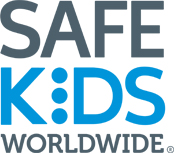Following tragic death, safety advocates remind caregivers to never leave a child alone in a car and to be on the lookout for children left in cars
Fort Worth, Tex. – As temperatures continue to rise, government officials and health professionals today joined Safe Kids Tarrant County, led by Cook Children’s, at Tarrant County Public Health to discuss ways to prevent child deaths and injuries from heatstroke in hot cars.
So far this year, at least five children have died from heatstroke while unattended in vehicles, including one child in the Fort Worth area. Texas is one of several states with a high number of heatstroke fatalities – at least 92 Texas children have lost their lives to vehicular heatstroke since 1998.
Safe Kids Tarrant County and other safety advocates urged parents and caregivers to never leave a child alone, the primary message in the Safe Kids heatstroke public education campaign.
To learn more safety tips, visit: http://www.safekids.org/heatstroke
“These kinds of tragedies are 100 percent preventable,” said Tiffany Hays Dixon, a mother who lost her 2-year-old son, Riley, to heatstroke after he found his way into a parked car and could not get out. “We have to keep raising awareness and educating parents and caregivers to make sure what happened to our family doesn’t happen to anyone else.”
“Cook Children’s doesn’t want to see this tragedy happen to any family,” saidDana Walraven, Safe Kids Coordinator for Tarrant County. “That’s why we’re calling on everyone to work together to help protect kids from this very preventable tragedy. Whether you are a parent or caregiver, or just a concerned bystander, you can help save lives.”
“Each year, especially during the summer months, we hear reports of the tragic loss of young children as a result of heatstroke in hot vehicles,” said Department of Transportation Regional Program Manager Frank Marrero. “We hope everyone who cares about the safety of our children – parents, grandparents, caregivers and others – will follow the simple, and important, safeguards that can save lives and avoid unnecessary heartache.”
Safety advocates also stressed the role bystanders play in reducing tragedies.
“We want everyone to be on the lookout for kids left in cars,” said Tarrant County Chief Deputy Sheriff Jay Six. “Keep an eye out when you’re walking through the parking lot at your local grocery, or shopping center; at church, or at school. If you see a child left alone in a hot car, don’t try to break into the car or shatter the window. All you have to do is call 911. One call could save a life.”
Many people are shocked to learn how hot the inside of a car can actually get. On an 80 degree day, the temperature inside of a car can rise 20 degrees in as little as 10 minutes and keep getting hotter with each passing minute. And cracking the window doesn’t help.
Heatstroke sets in when the body isn’t able to cool itself quickly enough. A child’s body heats up three to five times faster than adult’s, making them more susceptible to heatstroke. When a child’s internal temperature reaches 104 degrees, major organs begin to shut down, and when that temperature reaches 107 degrees, the child can die.
Safe Kids supports NHTSA’s heatstroke education campaign, “Where’s baby? Look before you lock,” and the increased national coordination on the issue. In addition, to help prevent these tragedies, Safe Kids, with the supportof the General Motors Foundation, created Never Leave Your Child Alone in a Car (NLYCAC) as part of its Buckle Up program, a national initiative established 17 years ago to keep children and families safe in and around cars.
Parents, caregivers and bystanders are encouraged to help reduce the number of heatstroke deaths by remembering to ACT.
- A: Avoid heatstroke-related injury and death by never leaving your child alone in a car, not even for a minute. And make sure to keep your car locked when you’re not in it so kids don’t get in on their own.
- C: Create reminders by putting something in the back of your car next to your child such as a briefcase, a purse or a cell phone that is needed at your final destination. This is especially important if you’re not following your normal routine.
- T: Take action. If you see a child alone in a car, call 911. Emergency personnel want you to call. They are trained to respond to these situations. One call could save a life.
Also taking part in the event are Anthony Green, director of public policy for Safe Kids Worldwide, Ann Salyer-Caldwell, associate director for preparedness for Tarrant County Public Health and Mark Fox, warning weather meteorologist for the National Weather Service.
For more information on preventing child heatstroke deaths, contact Dana Walraven at 682-885-1619 or please visit www.safekids.org/heatstroke.
About Safe Kids Tarrant County
Safe Kids Tarrant County works to prevent unintentional childhood injury, the number one cause of death for children in the United States. Safe Kids Tarrant Countyis a member of Safe Kids Worldwide, a global network of organizations dedicated to preventing unintentional injury. Safe Kids Tarrant County was founded in 1992 and is led by Cook Children’s Health Care System. For more information, visit www.safekids.org or Safe Kids Tarrant County website.
About the General Motors Foundation and Safe Kids Buckle Up
Beginning in 1997, General Motors and the GM Foundation have served as Safe Kids Worldwide’s exclusive funding source for its Buckle Up program, a multifaceted national initiative, bringing motor vehicle safety messages to children and families through community and dealer partnerships. To date, more than 22.5 million people have been exposed to Safe Kids Worldwide events and community outreach efforts. Certified child passenger safety technicians working through Safe Kids coalitions have examined over 1.65 million child safety seats at over 85,000 events, and the program has donated over 600,000 seats to families in need.
